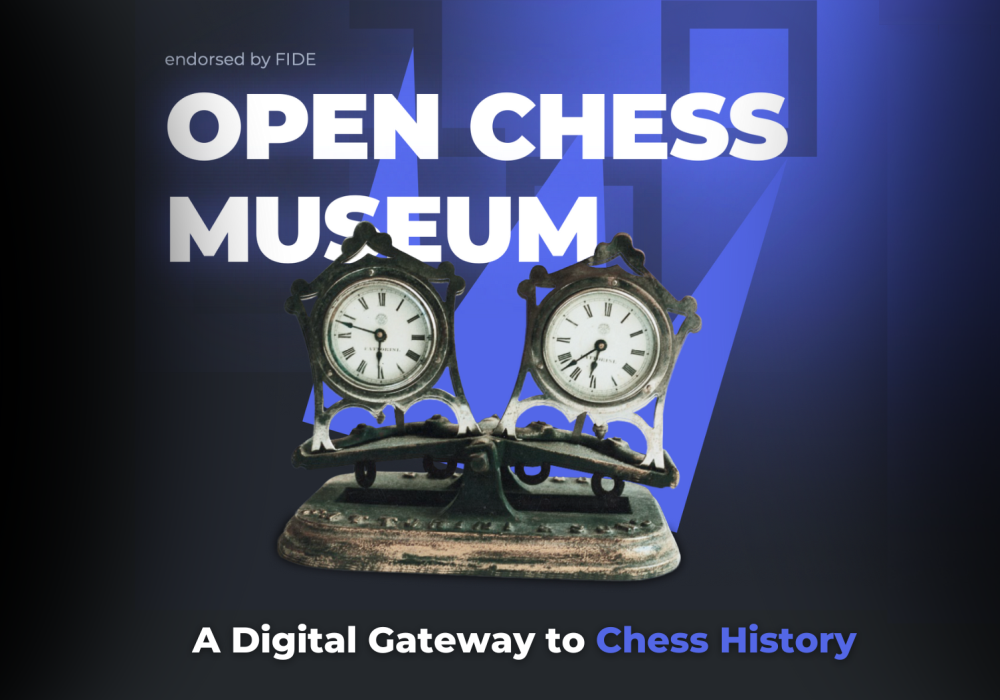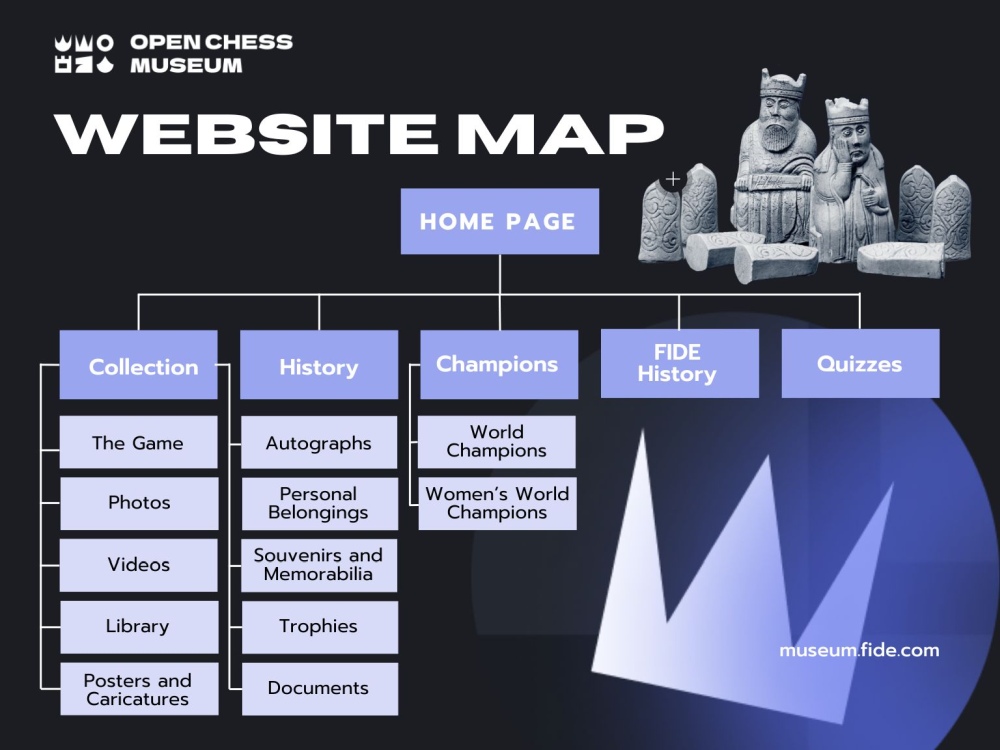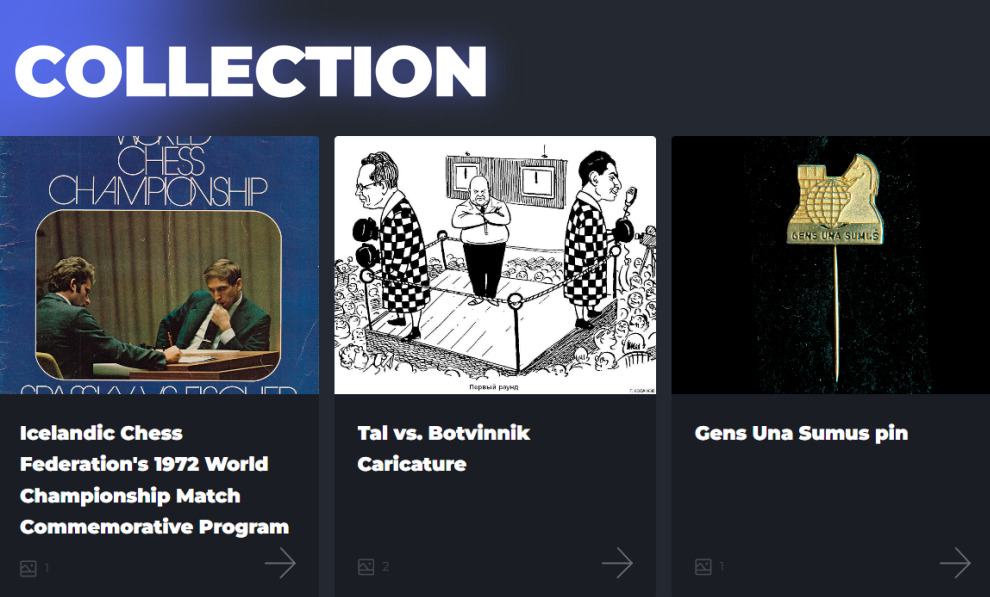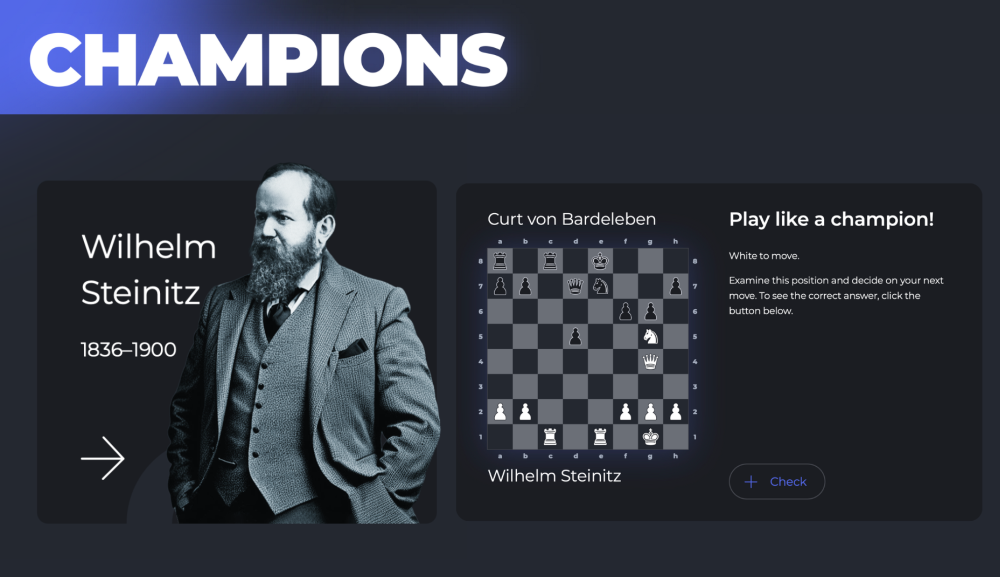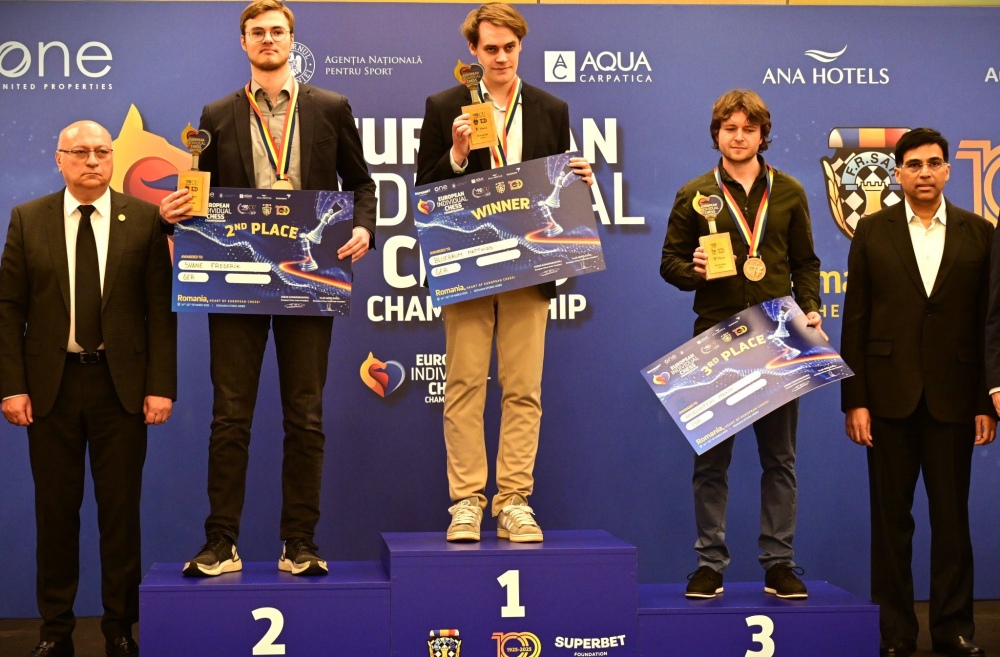
GM Matthias Bluebaum emerged victorious at the 2025 European Individual Chess Championship in Eforie Nord, Romania. The 27-year-old German clinched his second European title. Having previously won the event in 2022, he became the first-ever two-time European Chess Champion.
Heading into the final round, Bluebaum (pictured below) shared the lead with Daniil Yuffa (Spain) at 8/10, while a large group of seven GMs trailed just half a point.

Playing with the white pieces against Nijat Abasov, Bluebaum opted for a safe approach, making a quick draw. Meanwhile, GM Frederik Svane (Germany; pictured below) prevailed over Yuffa in a long and complex battle, catching up with Bluebaum at the top of the standings.

Joining Bluebaum and Svane in the first-place tie was Maxim Rodshtein (pictured below), who defeated Shant Sargsyan in the final round. All three players finished on 8.5/11, but Bluebaum secured the title thanks to a slightly superior Buchholz score over his compatriot Svane, who took silver. Rodshtein had to settle for bronze.
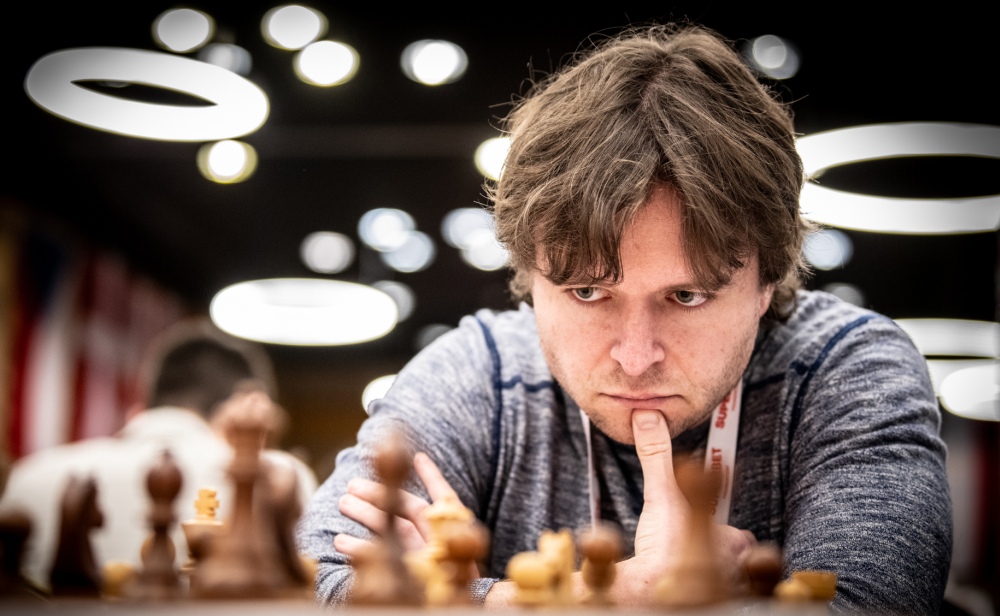
A total of nine players, including three U18 rising stars, finished in a tie for fourth place with 8/11.
Final standings:

The European Individual Chess Championship 2025 served as a qualification event for the FIDE World Cup. According to FIDE regulations and the ECU Board’s decision, the top 20 finishers secured a spot in the 2025 World Cup.
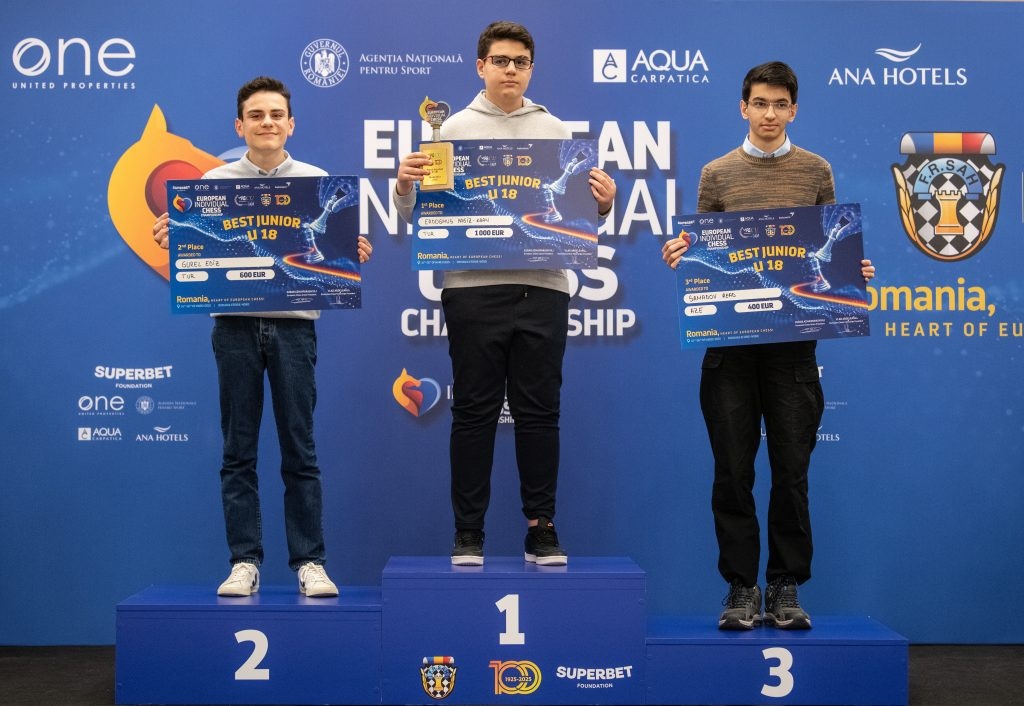
GM Yagiz Kaan Erdogmus (TUR, 2605) became the best-ranked Junior U18 player in the event with 8/11, and a better Buchholz over GM Ediz Gurel (TUR, 2620) and IM Read Samadov (AZE, 2502) who achieved the same score.
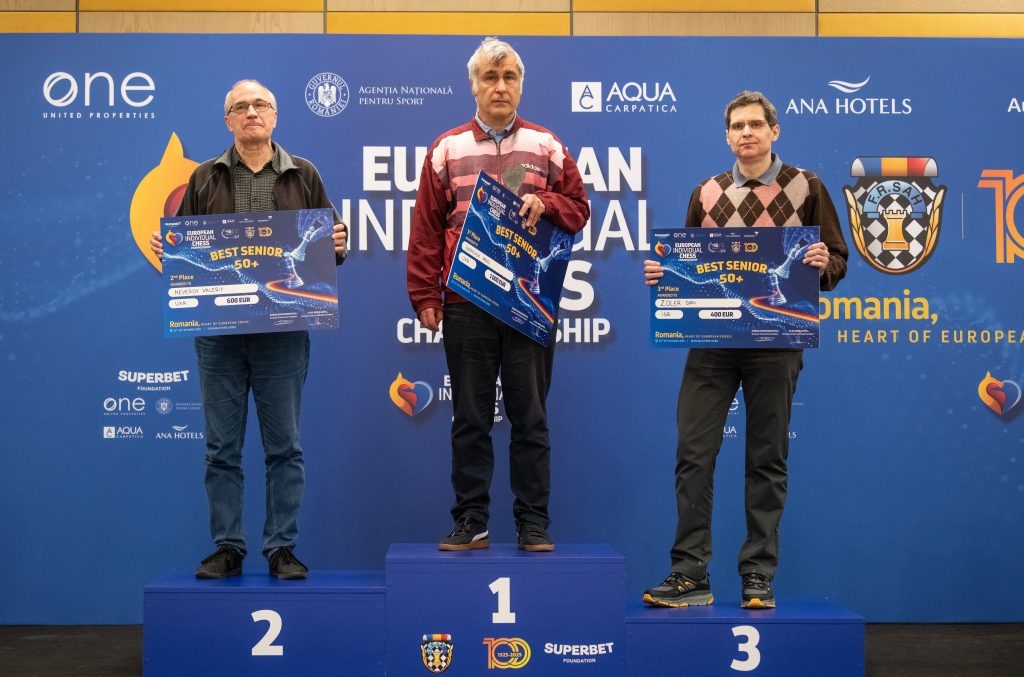
GM Vasyl Ivanchuk (UKR, 2604) was the best-ranked Senior 50+ player in the tournament, scoring 7/10. Second place in this category went to GM Valeriy Neverov (UKR, 2418) who netted 6.5 points. GM Dan Zoler (ISR, 2485) came third in this category with the same score but an inferior Buchholz.
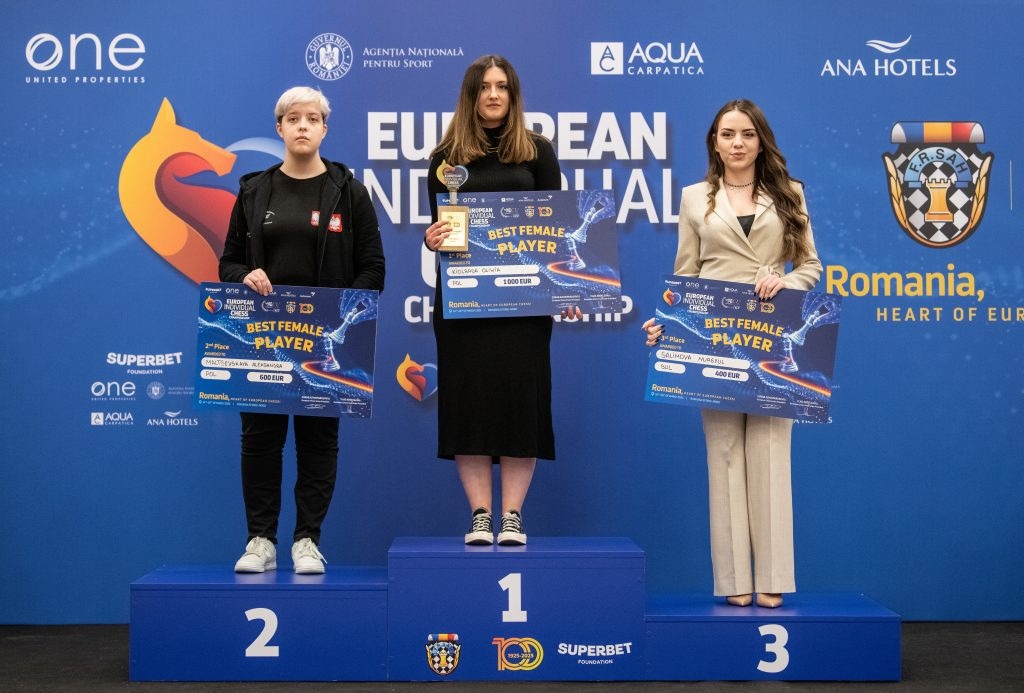
Four women players tied for the first women’s prize with 6/10, each. The tiebreak criteria favored IM Oliwia Kiolbasa (POL, 2360) who came first. IM Aleksandra Maltsevskaya (POL, 2376) was second, and IM Nurgyul Salimova (BUL, 2404) finished third.
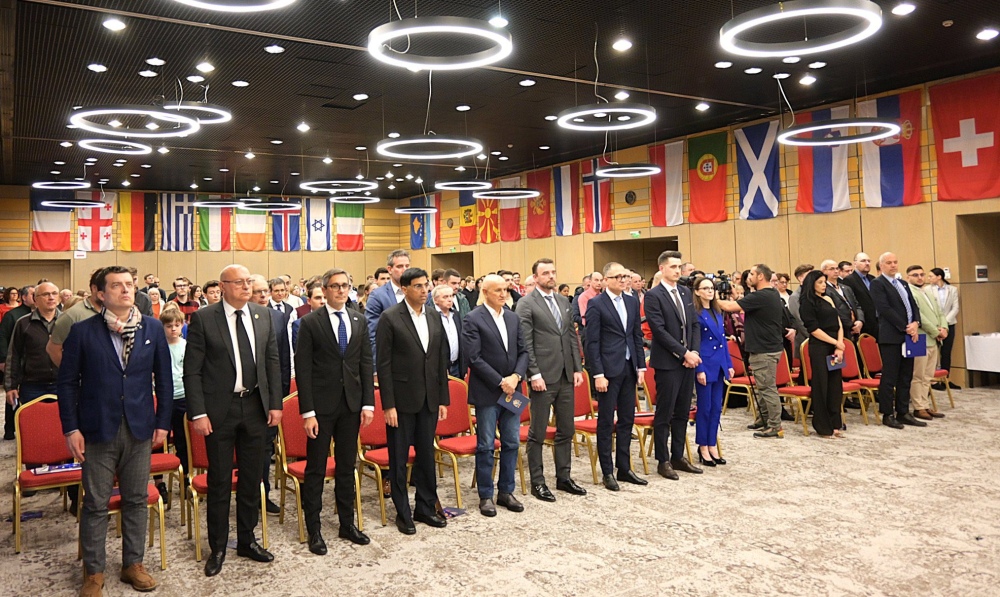
The closing ceremony took place in the playing venue and featured the ECU President Zurab Azmaiparashvili, President of the National Agency of Sports in Romania Constantin Bogdan-Matei, representatives of the Romanian Ministry of Foreign Affairs, five-time World Chess Champion and FIDE Deputy President Viswanathan Anand, President of the Romanian Chess Federation Vlad Ardeleanu, ECU Vice President Alojzije Jankovic, ECU Secretary General Theodoros Tsorbatzoglou, ECU Tournament Director Petr Pisk, board members of the Romanian Chess Federation, and other distinguished guests.
Photos: European Chess Union, Federația Română de Șah and David Llada
Official website: eicc2025.com/


